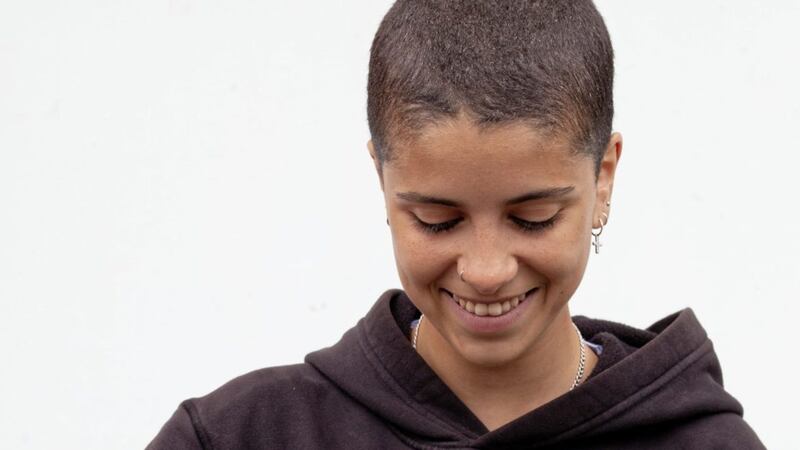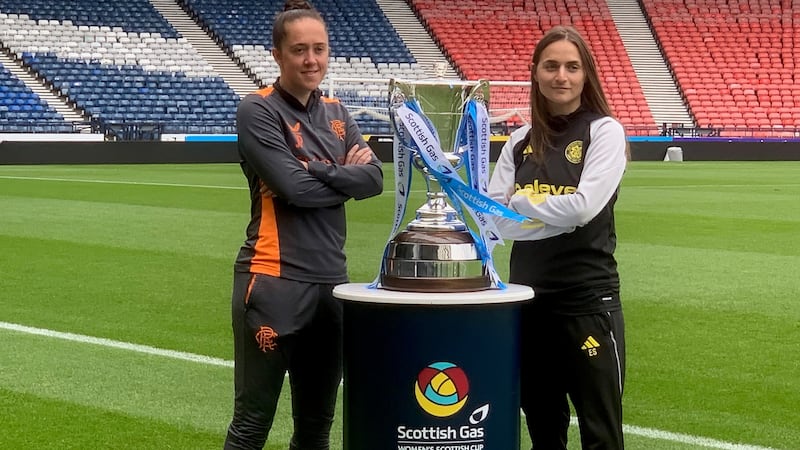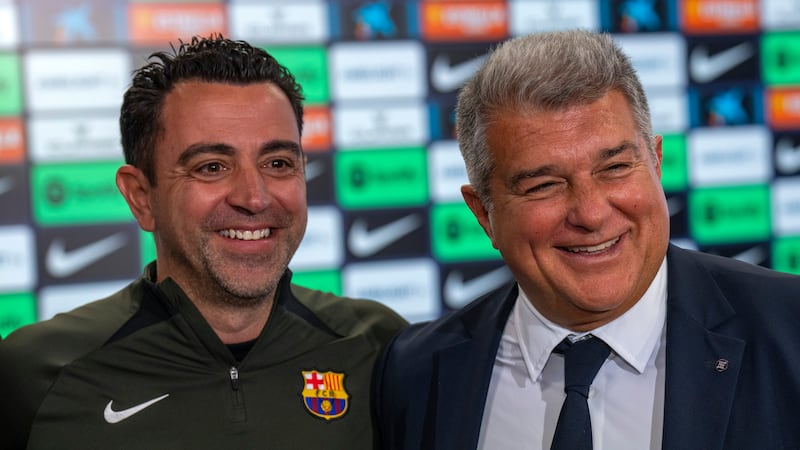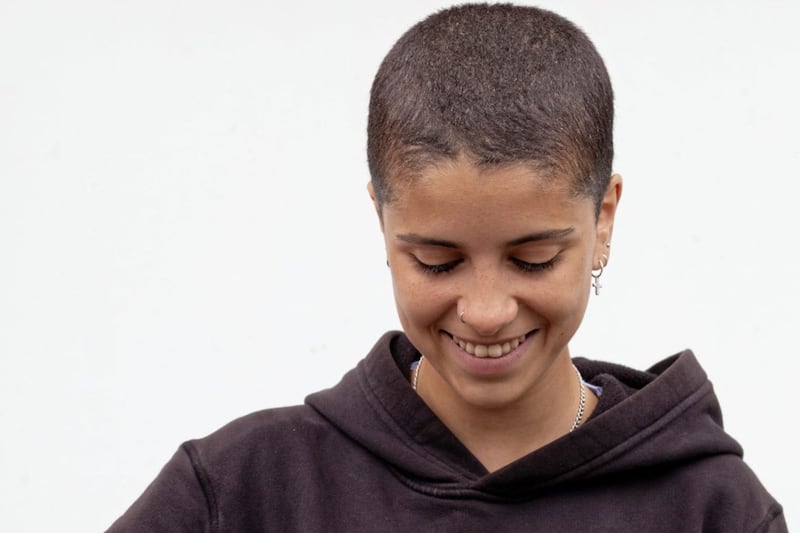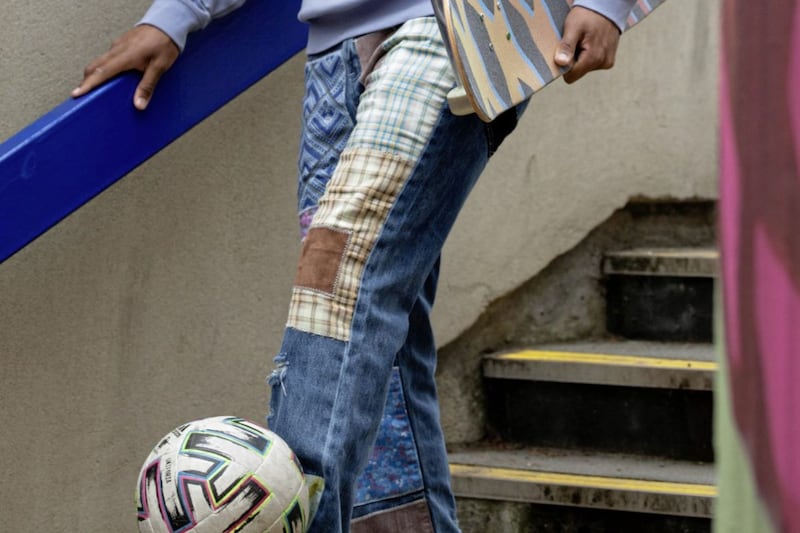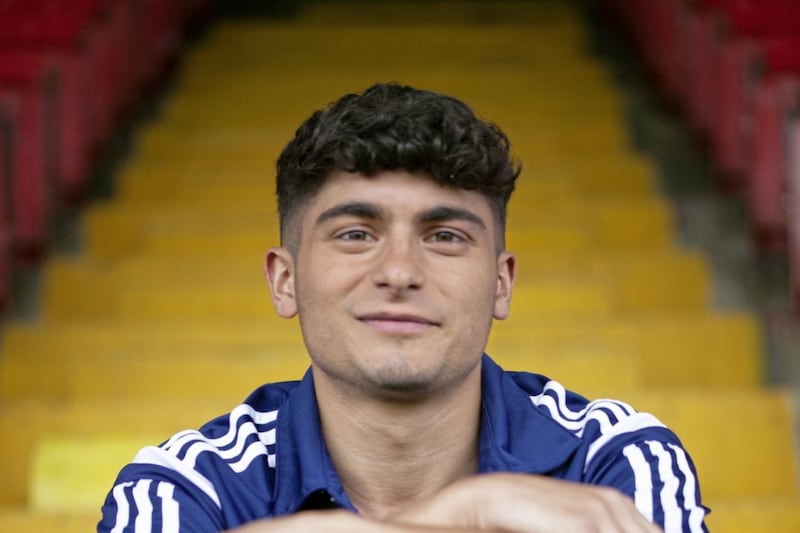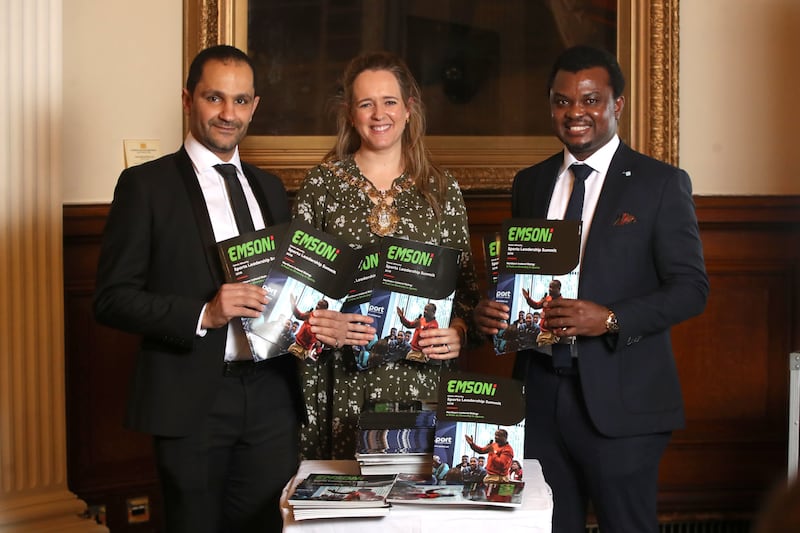IF you can view Rosie Zubier’s WhatsApp profile pic, you’ll see Afro hair and a Northern Ireland number 7 shirt.
Both those aspects are in her past now.
The 18-year-old has cut her hair and largely cut her ties with soccer. Racism played a part in both those decisions.
She has a hectic life, studying for her ‘A’ Levels and working part-time in a coffee shop near her home in Jordanstown.
Yet, inspired by the Black Lives Matter movement, she’s still determined to take the time to speak out against racism, as a contributor to the short film ‘Where You Really From?’
The daughter of a man from Sudan, her two older brothers experienced regular racial abuse when their dad was watching them play soccer:
“I remember, my dad used to coach my brother, so when I’d finished my football match I’d go and stand on the side-line with my dad, watching my brother’s matches.
“My brother was subjected to racial abuse, people would call him names, tell him to go back where he came from.
“He didn’t know how to react because he’s so ‘white passing’, he’s the lightest of the three of us, he does look like a white boy.
“It would only ever happen whenever my dad was on the side-line. People in the other teams knew my dad was his father, it wasn’t like he was just some man standing on the side-line.
“Whenever my brother’s opponents got angry or emotional they would just attack my dad through my brother. It’s actually crazy.”
Rosie was subject to abuse herself. Perhaps more shockingly, that came from another child, as she recalls. Her side was beating a boys’ team and an opponent called her ‘the n-word’:
“I remember at first I didn’t know if I heard him right, I was thinking ‘Has he actually just said that?!’ He would have been nine or 10. I wondered ‘Has he just said that or am I just thinking that?’
“I realised that he did say it, and he said it in the right context, which also made me think ‘What is he hearing at home?!’
“It was anger with me, that the only thing he could think of attacking was my ethnicity. That set me back a bit. If one of my team-mates had made him that angry he’d just have called them a ‘bitch’, or something like that.
“For me, he came straight for where I was from and my entire history. That definitely made me feel way more of an outsider than I was already feeling. At that age, you’re all together, you don’t really see many differences.
“That was the first time I started to realise ‘I am different’ and people see me as different, I’m not just seeing myself as different.”
On the upside, one of Rosie’s team-mates literally went straight for the throat, grabbing the opponent there, and other raced to confront him.
Yet Rosie continued to feel like an outsider. At school – “an all-girls Catholic school, where I stick out like a sore thumb” – around home, and on soccer sides.
“I’ve been in Jordanstown my whole life and there aren’t many people of colour around here. It’s a very white, middle-class area.
“I could probably count on two hands how many POCs [people of colour] I’ve seen around here - and most only because the uni is over here, Ulster University. They are mostly students, not living here or from here.”
She played football first with Crusaders, then Cliftonville, and again she was the only ‘POC’:
“That was the case for both teams, but in Cliftonville in age groups above and below me there were more POCs. With Crusaders, I think it was literally just me in the entire youth development programme, at least until I left; I don’t know what it’s like now.
“There are definitely a lot more POC throughout the Cliftonville Academy.”
The demographics of Crusaders’ Shore Road immediate catchment area have been diversifying in recent years, but change comes dropping slow in Northern Ireland.
Talented enough for the Northern Ireland underage sides, Rosie “didn’t feel part of it:
“It was more of a vibe I was getting that I didn’t fit in. I was friendly with everyone on my team, it wasn’t as if I had no friends. It was more, from past experience, I could tell I stuck out a bit more.
“It became more apparent when I went away on trips and I’d have this whole, lengthy hair routine, trying to fix my curls. It was micro-aggressions from my team-mates. They’d make a comment about my hair, not knowing that the comment cut deeper than they thought it did.
“I was never subjected to any serious discrimination, I just felt I didn’t really belong there. I’ve never really felt any kind of national pride.
“I don’t really like Northern Ireland as a place, I’m not going to lie to you. There were people on my team who were just so proud to represent their country…That wasn’t me.”
The slogan for boosting women’s sport has been ‘If you can’t see it, you can’t be it’. That’s how Rosie Zubier feels about women’s soccer here:
“I do think we need a POC role model within women’s football in Northern Ireland, that would be definitely helpful to a lot of young grassroots players coming through.
“I know if I’d had someone I could look up and relate to more, I probably would have stuck with Northern Ireland for longer.
“I ended up falling out of love with the sport a wee bit and now I’m barely playing club football. I think if I had someone to look up I’d have enjoyed it more and had something to strive towards.”
It’s hard to be the first, to make the breakthrough. People of colour, especially, have to be better, have to show more than their white counterparts, as Rosie found:
“You always had extra expectations placed on you and as soon as you didn’t live up to those expectations you were attacked.
“We saw it with the [England] penalties at the Euros. It wasn’t just three England players who missed penalties, it was three black players. They made mistakes, but the first thing that people attacked was their race, not their ability to play football.
“I think that’s why it’s so much more daunting to be the only POC on a team, because you leave yourself open to so much more criticism than your white counterparts.”
She’s cropped her hair close, explaining: “It was a mixture of avoiding criticism and a style choice. It came to a point where I was just fed up.
“I would get comments pretty much on a daily basis, telling me that my hair was a mess or I’d been ‘dragged through a bush backwards’.
“My hair wasn’t messy, I just have curly hair. People were expecting it be really neat, in ringlets, or if I had braids for all the parts to be completely perfect. People expected perfection from my hair and I was like ‘I can’t do that, my hair doesn’t want to be that way’.
“I also got fed up with putting so much time into my hair. It would take 14 hours for my hair to dry because I couldn’t use a hair-dryer or else my hair would turn way bigger.
“I decided ‘I’ve had enough of this, I’m just going to shave it off’.”
She doesn’t regret that, indeed it’s led to modelling work.
Changing what’s inside white people’s heads is the aim of the WYRF? film, she concludes:
“In the long run, to make any kind of big difference, it’s going to be down to schools and school curriculums, and parents teaching their children about how to be respectful of other people’s cultures.
“Also, there’ve been social media platforms which have helped and created a movement towards inclusivity…
“I didn’t know an awful lot about my history until I had some time to start reading into it a bit more and doing my own research. I think it’s mainly down to schools and word of mouth…
“Even in grammar schools, you’re always learning about ‘The Troubles’ and all of our Irish history, but never about other people’s histories and back stories. That’s a change which is necessary and would shift us in the right direction towards a more inclusive society.”
